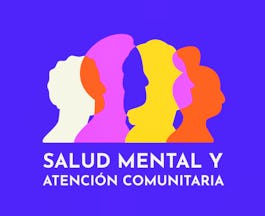Filter by
The language used throughout the course, in both instruction and assessments.
Explore the Justice Course Catalog

University of Colorado Boulder
Skills you'll gain: Social Sciences, Sociology, Anthropology, Social Justice, Liberal Arts, Social Work, Media and Communications, Cultural Diversity, Storytelling, Environment and Resource Management
 Status: Free
Status: FreeJohns Hopkins University
Skills you'll gain: Leadership and Management

The University of Edinburgh
Skills you'll gain: Culture, Media and Communications, International Relations, Cultural Diversity, Social Sciences, Diplomacy, Socioeconomics, Diversity Awareness, Finance, Social Justice, Governance, Community Development, Economics

Columbia University
Skills you'll gain: Policy Analysis, Gerontology, Social and Human Services, Disabilities, Public Policies, Economics, Policy, and Social Studies, Social Justice, Child Welfare, Community and Social Work, Program Evaluation, Social Sciences, Socioeconomics, Demography, Human Development

Universidad de los Andes
Skills you'll gain: Community Mental Health Services, Mental Health, Cultural Diversity, Crisis Intervention, Diversity Awareness, Motivational Interviewing, Behavioral Health, Preventative Care, First Aid, Community and Social Work, Cultural Sensitivity, Human Development, Social Justice, Advocacy

University of Michigan
Skills you'll gain: Social Justice, Cultural Responsiveness, Diversity Awareness, Cultural Diversity, Health Systems, Socioeconomics, Social Sciences, Health Care, Economics, Policy, and Social Studies, Culture, Sociology, Diversity Equity and Inclusion Initiatives, Community and Social Work, Advocacy, Behavioral Health

DeepLearning.AI
Skills you'll gain: Leadership and Management, Algebra, Mathematics, Problem Solving
 Status: Free
Status: Free
Princeton University
Skills you'll gain: Social Justice, Economics, Policy, and Social Studies, Ethical Standards And Conduct, International Relations, Policy Analysis, Cultural Diversity, Cultural Sensitivity, Environment and Resource Management, Systems Thinking
 Status: Free
Status: FreePontificia Universidad Católica de Chile
Skills you'll gain: Environment, Environmental Issue, Social Justice, Environment and Resource Management, Natural Resource Management, Systems Thinking, Social Sciences, Cultural Sensitivity, Environmental Policy, Economics, Policy, and Social Studies, Community Development
 Status: Free
Status: FreeYonsei University
Skills you'll gain: Culture, Intercultural Competence, Cultural Diversity, Psychology, Social Justice, Anthropology


The University of Notre Dame
Skills you'll gain: Data Ethics, Analytics, Data Analysis, Ethical Standards And Conduct, Machine Learning, Business Ethics, Artificial Intelligence and Machine Learning (AI/ML), Information Privacy, Artificial Intelligence, Technology Strategies, Social Justice
 Status: Free
Status: FreeYale University
Skills you'll gain: Environment, Environmental Issue, Water Resources, Intercultural Competence, Ethical Standards And Conduct, Cultural Diversity, Social Justice, Advocacy
Justice learners also search
In summary, here are 10 of our most popular justice courses
- Animals, Self, and Society: University of Colorado Boulder
- Black Lives Matter: Johns Hopkins University
- Football: More than a Game: The University of Edinburgh
- Social Services for Families, Seniors and Those with Disabilities: Columbia University
- Salud mental y atención comunitaria: Universidad de los Andes
- Social Determinants of Health : University of Michigan
- 컨볼루션 신경망: DeepLearning.AI
- Food Ethics: Princeton University
- Sustentabilidad: los desafíos desde Latinoamérica: Pontificia Universidad Católica de Chile
- Re-imaging God in Korean Context: Yonsei University












